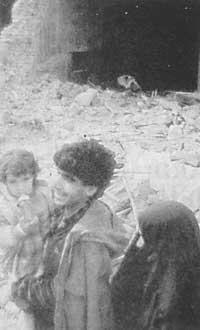Risk of Baghdad Pests

The health services in Baghdad have been seriously damaged by the bombings. The detection of pests is practically impossible due to the breakdown of the computers of the Minister of Health and the shortage of water existing in the city.
According to Ali Khogali, a member of the World Health Organization, cases of diarrhea that occurred in Baghdad are multiplied by four. In addition, the damage suffered by the Minister of Health has forced to transfer health services to different buildings without a telephone. Since these services were computerized before the war, the consequences are even more serious.
The supply of drinking water has been reduced by up to 5%, that is, the average of water per person is one liter per day, while to cover the minimum needs is estimated at 40 liters per day. Several people drink water directly from the Tigris River.
The direct consequence of this situation is the proliferation of typhus, cholera and hepatitis. To address this problem, immediate measures have been taken, such as the separation of antibiotics and salts of hydration to the population. However, Khogali insists that this division must be four times greater to prevent serious pests from occurring.





